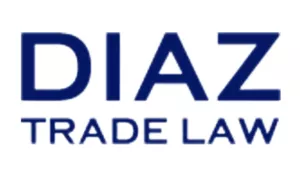USTR Finalizes Action on 301 Tariffs
The United States Trade Representative (USTR) announced final tariff modifications following their statutory review of the Section 301 investigation of the People's Republic of China's (PRC) Acts, Policies, and Practices Related to Technology Transfer, Intellectual Property, and Innovation. The final modifications include tariff increases on several products including critical minerals, batteries, and semiconductors.
301 Investigation Background
In August 2017, USTR initiated an investigation into China's acts, policies, and practices related to technology transfer, intellectual property, and innovation. The agency released a report of its findings in March 2018 and in June 2018 began imposing additional duties on products of China in four tranches.
Under the Trade Act of 1974, the USTR is required to conduct a four-year review if they receive an appropriate request to continue an action taken under Section 301. The agency is required to review:
- (A) the effectiveness in achieving the objectives of section 301 of (i) such action, and (ii) other actions that could be taken (including actions against other products or services), and
- (B) the effects of such actions on the United States economy, including consumers.
In accordance with this requirement, USTR announced in May 2022 that it was commencing this review and opened a docket for interested persons to submit comments.
The agency received nearly 1,500 comments. Throughout 2023 and early 2024, USTR and the Section 301 Committee (a USTR-led, interagency Trade Policy Staff Committee) held numerous meetings with agency experts to consider the comments received.
In May 2024, USTR issued a formal proposal in the Federal Register to increase tariffs on specific products in strategic sectors. The agency considered more than 1,100 public comments
Final Modifications
The modifications proposed in May 2024 were largely adopted.
Tariff increases will impact the following products:
- Battery parts (non-lithium-ion batteries) – Increase rate to 25% in 2024
- Electric vehicles – Increase rate to 100% in 2024
- Facemasks – Increase rate to no less than 25% in 2024
- Lithium-ion electrical vehicle batteries – Increase rate to 25% in 2024
- Lithium-ion non-electrical vehicle batteries – Increase rate to 25% in 2026
- Medical gloves – Increase rate to no less than 25% in 2026
- Natural graphite – Increase rate to 25% in 2026
- Other critical minerals – Increase rate to 25% in 2024
- Permanent magnets – Increase rate to 25% in 2026
- Semiconductors – Increase rate to 50% in 2025
- Ship-to-shore cranes – Increase rate to 25% in 2024
- Solar cells (whether or not assembled into modules) – Increase rate to 50% in 2024 Steel and aluminum products – Increase rate to 25% in 2024
- Syringes and needles – Increase rate to no less than 50% in 2024
Exclusions:
Solar manufacturing equipment – The final modifications include 14 temporary exclusions of wafer and cell manufacturing equipment from the 301 tariffs. The exclusions are retroactive and applicable to products imported on or after Jan. 1, 2024, and through May 31, 2025.
Machinery exclusions – In response to a directive from the President to establish a process by which interested persons may request that machinery used in domestic manufacturing be excluded, USTR added 312 subheadings to be eligible for consideration for temporary exclusions.
What Importers Should Do
For importers impacted by additional duties it is crucial to know when the additional duties are effective and must be paid. We urge importers to clearly understand which duties their products are subject to and develop a business plan on how to prepare for additional import costs.
The content of this article is intended to provide a general guide to the subject matter. Specialist advice should be sought about your specific circumstances.


